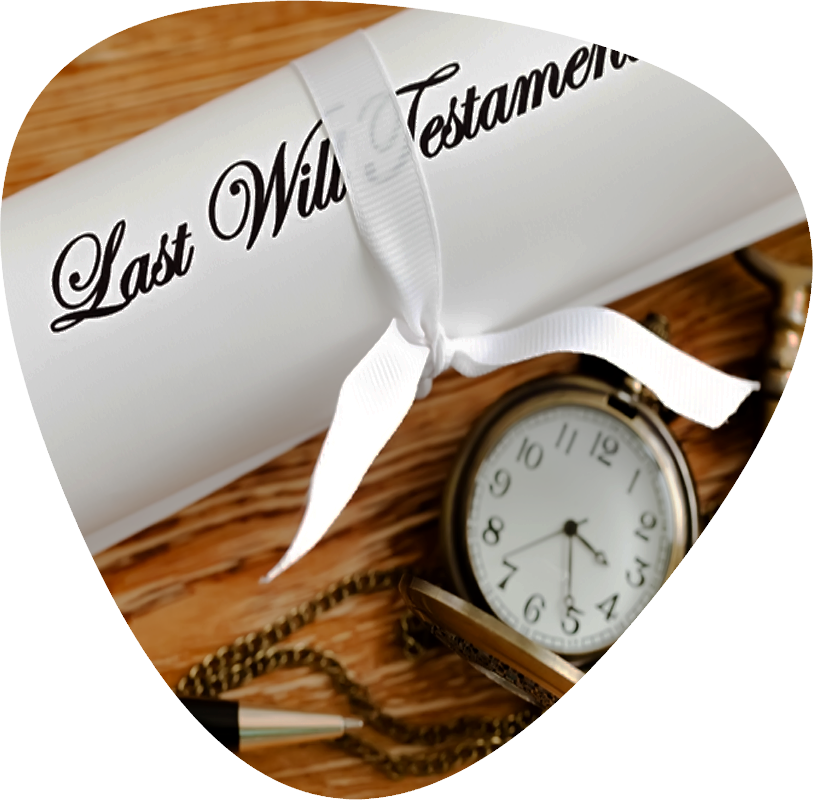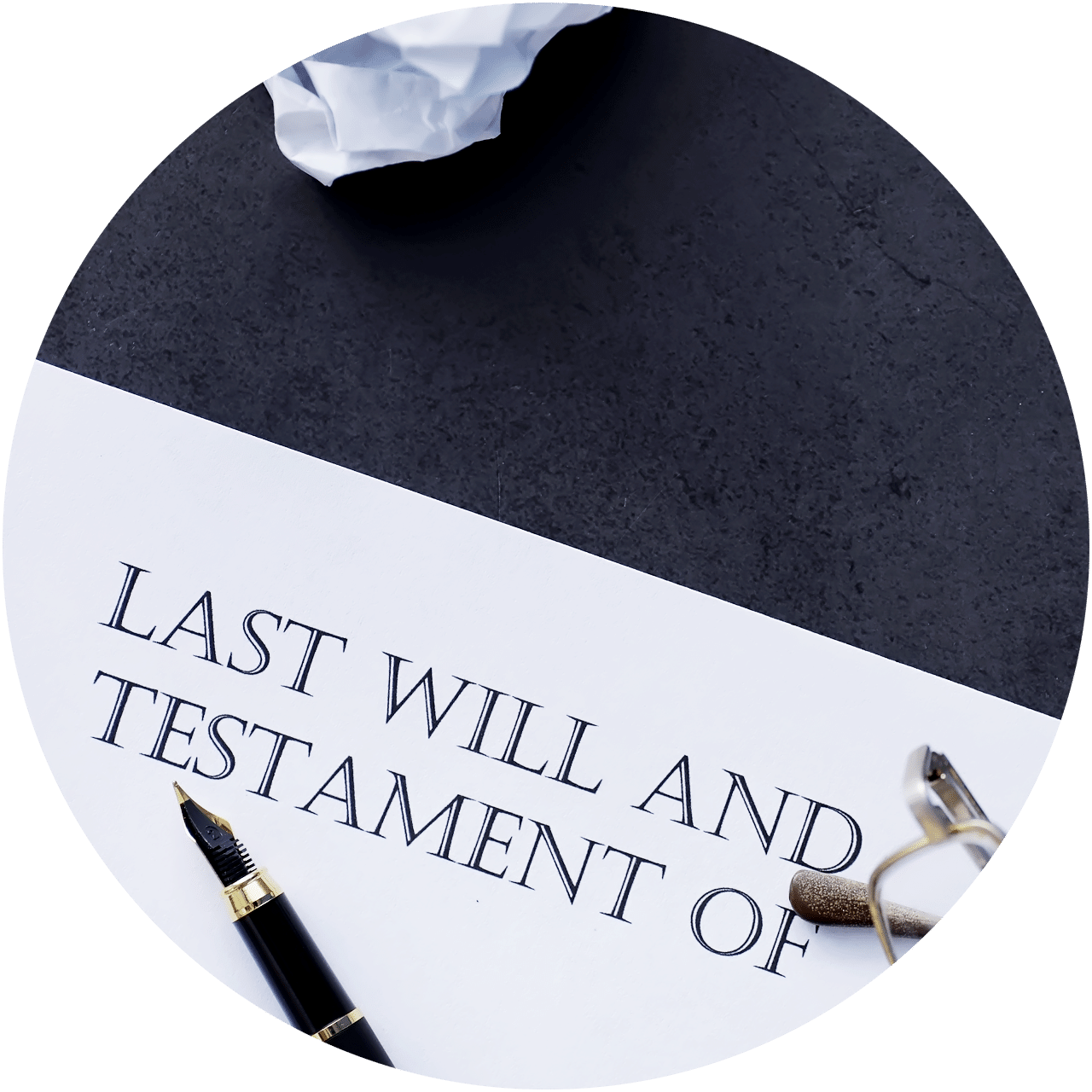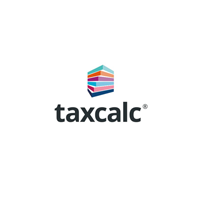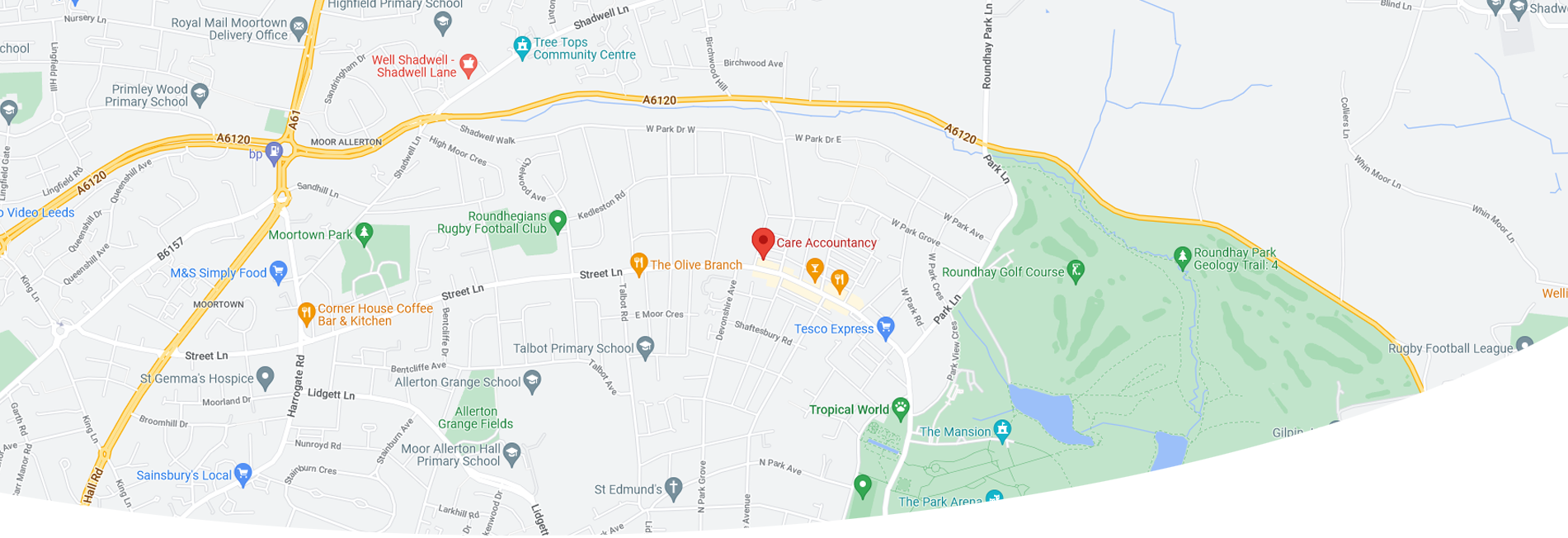Making
A Will
What is a Will?
A Will is a legal document that indicates who will inherit the Estate after the death of the owner of the Estate and what will happen to the wealth after death. In simple terms, it is a document that includes details as to how an owner of the Estate would like belongings to be distributed, what sort of funeral to prefer, who should bring up the children or who will take care of the pets, etc.
A Will generally possesses legal binding, but it requires to be prepared carefully and properly so that its validity and legality remains unchallengeable.
A Will can be written by oneself, but if the Estate assets are multiple, tied up in complex products, or understanding their functionality and risks is difficult, help can be sought from a solicitor or expert Will-writer.
In the absence of a Will, chances exist that the estate will be distributed under a strict set of rules, which could mean that the people that one cares about may lose out. Also, one should be mindful of certain caveats that if not managed properly could invalidate the Will.
To know further, please go below by reading the “Reasons for making a Will.”


Reasons For
Making A Will
Making a “Will” ensures that the estate will be dealt in accordance with wishes of the owner. Documenting the wishes by way of Writing a Will protects the loved ones after death. The important reasons for making a Will and also the process of making a Will is elaborated below.
The Will process needs to be planned effectively and efficiently to ensure that the assets wealth and money available after death are put to the right use and to the right beneficiaries.
Not only protecting the spouse /partner is necessary, but also it is necessary to protect the interests of the children after death because they are exposed to more vulnerability than others. For the education and well-being of the children, it might be necessary to set aside a specific sum of money for their future use as well as to meet their other needs and necessities.
While the Estate owner is still alive, a Trust can also be set up for them to ensure retention of control over the Estate and ensure that the money is utilised exclusively for their benefit. The Estate that children inherit is usually held in Trust until they attain the age of majority. However, sometimes money is released to them not on attaining the age of majority but after attaining a certain age. While the Executors can deal with the funds, the estate owner can also instruct how the Trust is to be managed.
The rules, manners, and ways in deciding how the Estate assets will be distributed after the death are dealt with differently if there is a Will in place and quite differently in the absence of a Will. If a Will does not exist, the distribution of wealth is left for family courts to decide who should raise the children.
Consequences of not making a Will?
When a person dies without making a Will, the Estate is divided according to an Intestacy Law which distributes the property according to certain standard rules, which offer little control over who will receive the Estate. This deceased’s Estate under this law distributes the Estate assets to the legal heirs/beneficiaries in a strict order based on their relationship with the deceased. Normally, a married spouse or civil partner gets most of the share in the assets while an unmarried partner can inherit nothing.
The following can be the implications of not writing a Will:
- Unmarried Partner – An unmarried partner has no right in the distribution of the Estate unless it has been specifically mentioned in the Will. If the primary residence is in the deceased’s name, an unmarried partner will lose the right to the residence as they would not automatically inherit the Estate after the death. To ensure that an unmarried partner gets his/her share from the Estate, a Will needs to be drawn to ensure a due share in the deceased’s property.
- Stepchildren – Only the deceased’s blood relatives/spouses can inherit the Estate, ruling out stepchildren from the inheritance. There is a possibility that they might be the only children of the deceased. The same rule applies to foster children and other dependents. Writing of a Will can ensure that such children also enjoy benefits to the Estate after death.
- Family Disputes – Sharing of Estate after the death can cause serious disputes amongst the heirs and others in the absence of a Will. Even if the Wills exist, if they are challenged or contested, this can sabotage the Estate distribution process and the relationship amongst different family members. A well-written Will can avert such disputes.
- Reduce your Inheritance Tax Liability – The amount of Inheritance tax depends on the value of Estate owned and to whom it is left. Generally, the portion of the Estate that goes to the spouse/ civil partner is exempt from Inheritance tax. Anything left to the children beyond a certain threshold or grandchildren will generate an Inheritance Tax, which can be avoided if properly planned.
- Care of Pets – Many people take care of their pets, such as dogs, cats, etc., as their own family members. After death, some financial arrangements should be in place to take care of them. This responsibility can be assigned to someone who is willing to take care of them. Some funds can be set aside for them to feed them, their health, and well-being.
- Charities and Community Clubs – A part of the Estate can be transferred to charity on passing away. Other than the good cause, it can result in a lower Inheritance Tax rate if more than 10% or more of the Estate is donated to a charity registered in the UK. The same rule applies to donations to a School, University, or Community club.
- Funeral People can also propose special instructions for their funeral or disposal of their bodies, including burial of precious belongings with them. Last wishes are usually followed but are not legally binding on the Executor who has discretion over the funeral arrangement and the remains. It is possible that the Will is read when the funeral plans have already taken place and therefore execution of the funeral plans as per the Will might not be possible. It would be advisable to share the wishes with the Executor or a trusted loved one beforehand.
Process of making a Will
Writing of a Will requires entailing and listing all the assets left behind for the family or the loved ones. The way the Estate and the property will be transferred depends upon how it is owned, with the residential home normally constituting the largest item in the Estate left behind.
If the spouse inherits the property, there is no inheritance tax. If the residential home is left to a direct descendent such as a child, inheritance tax becomes applicable if the value of the Estate exceeds a certain threshold.
Disclaimer
If the home is owned outright a new owner can be nominated in the Will and as such the title will pass on to such person after his death. A right of residence can be granted in the property for a specific timeframe, e.g. until the time they are raising the deceased’s children. After the lapse of such period, ownership may pass on to someone else.
Sometimes circumstances such as “Joint Tenancy” may also exist when the share of the property passes on to another Joint Tenant automatically. Sometimes property is owned by more than one or several other surviving owners of the property called Tenant-in-common. In such circumstances property does not pass automatically to the surviving owners but is to be distributed as specified in the Will.
If there is an outstanding mortgage on the property, the heirs may either repay the loan or make arrangements with the mortgage lender to remortgage the home.
Overseas property or any other assets should be in accordance with the local laws of that country. Therefore, the Will be in accordance with the local inheritance law. As other countries may have different rules than the UK, it is important to seek legal advice from someone having expertise in the local jurisdiction.
Any part of the estate which is otherwise not mentioned or unconsciously not included in the Will can be accounted for under “residuary gifts”. If the Will does not include the residual gift clause, the residual estate will be divided up according to the law of intestacy.
In the digital world, Estate is not limited to cash, bank accounts, and property but would also include digital assets such as social media accounts, websites, online purchases, crypto’s, etc., which may be of importance and value. Specific family members or friends can manage the social media accounts provided passwords and login details are shared with the Executors.
It may therefore be observed that a Will can include a wide range of situations, from defining the beneficiaries as to mentioning who will take care of the children, pets, or guidance for the funeral. The prime reason for writing a Will is defining how, how much and the individual amounts of the assets to be distributed amongst the family members, charity, or friends, and the individual amounts are also referred to as the specific legacy.
The remaining estate other than those included in the specific legacy is known as residue or “residual legacy” is the amount after settling any debts including the inheritance tax bill and the specific legacy assets. If the amount of specific legacy and inheritance tax bill exceeds the amount of the whole estate; anyone named as receiving the residual estate will receive nothing.
If an asset is to be split between two or more people, their individuals share in absolute terms or percentages must be specified. If the amount is to be bequeathed to someone, it must be described whether it will be from the residual estate or as part of the specific legacy. Generally, the inheritance tax is taken from the residual estate, but it also can be specified otherwise. There is also a possibility that the person who inherits the estate will be responsible for the inheritance tax due on the amount received.
Making A Will
A Will can be written by anybody by the person who owns the Estate, property, or assets, or he may do so by engaging the services of a professional. Alternatively, a Will written by a person himself can be reviewed by a professional, in which case it can be less costly.
A Will can be written on any paper and does not need to be in any standard format provided it is properly signed and witnessed as directed by the law. However, a Will with vague instructions or an invalid Will can cause conflicts and result in lawsuits between the beneficiaries.
Regulatory Authority
The regulatory authority for dealing with Wills depends upon where the person writing the Will, lives. This authority is called The Solicitors Regulation Authority for England and Wales, the Scottish Law Society for Scotland, and the Northern Ireland Law Society for Northern Ireland.
Writing A Will
The route chosen to write a Will would depend upon the complexity of the state of affairs, assets, and how much assistance would be required in writing the Will. If the estate affairs are more complex it is a good step to seek professional advice because it is very easy to make technical errors in a Will which can even invalidate the Will or can cause conflicts between the beneficiaries afterward.
To avoid paying high fees to a lawyer, companies often provide Will writing services that contain ample guidance to make a precise Will. A Will drafted using the services of such a reputable and recognised company is likely to be more valid than by doing it yourself, and less costly. This option can be explored if the circumstances are relatively simple however, the risk of inaccurate reporting and levy of consequent still exists and there are benefits of engaging the services of a professional lawyer for the purpose. It is because a Will can be tailored according to an individual’s personal circumstances by the professional advisor who could determine what is it that is intended to be achieved.
If the family circumstances are complex e.g. person having more than one marriage, children from a previous marriage, existing or former partners, or family members or friends have special needs, even if it is desired such persons may otherwise not inherit from the estate. Sometimes the nature of assets held involves complex considerations and legal interpretations of rules as in the case of overseas property or if the estate has a higher value, it may attract a higher inheritance tax, which incidence can legally and remain within the confines of the law can be reduced, consultations with a professional advisor is a must. In short, it is always worthwhile to engage a professional in this delicate and extremely important task.
Executors
The person who is assigned the task to carry out the wishes of the deceased as elaborated in the Will is called the Executor. This can be a person of trust, a friend, relative, a solicitor or a professional executor law firm.
If a person is not named as an Executor in the Will, or named but not willing to take such role, then one or more of the beneficiaries can apply to administer the Estate. People sometimes nominate one or more Executors called substitute Executors to retain greater control over the administration of the Estate after death.
If the Estate matters are not too complex it is best to opt for a family member or a friend to act as an Executor because solicitors or law firms can charge the Estate a lot of amount for rendering their services. In any case, if the Executor needs professional advice, they can always commission Probate services. Executors can be a beneficiary to inherit from the Estate, provided they are not a witness to the Will. Unlike Witnesses, they do not need presence while the Will is being signed but have to be above 18 years of age.
Guardians
A Will may also nominate a person of trust to act as a Guardian who would look after the children below the age of 18 years as their legal guardian. Consent of the Guardian to the guardianship must be sought beforehand because if this matter is left unattended it would be left for the family courts to decide which position may become complicated for the heirs.
Witness
The Will must be signed by the owner of the Will in the presence of two witnesses above 18 years of age and also by the Witnesses themselves for it to be valid. The Will should not contain errors or be subject to changes. Current legislation permits witnesses to watch the Will signing via video call if they cannot be present in person though not recommended as it may be prone to unforeseen or unanticipated risks.
If any of the Witnesses is nominated as a beneficiary in the Estate, it could invalidate the Will. Witnesses must therefore not have any interest in the Will however they can be nominated as Executors.
Modifying A Will
If the circumstances change substantially it may warrant a need to modify the original “Will” for example
- remarriage, or to transfer the Estate on death to an unmarried partner
- divorcing of partner to exclude as a beneficiary from the Estate
- appointing a legal guardian for minor children
- nominating stepchildren, foster children, or other dependents as beneficiaries
- acquisition of a new property after the Will was written
- death of the spouse who was one of the beneficiaries of the Will; or
- someone who has left their estate to the writer of the Will
Modifications Challenges
As the Will has to be drawn in accordance with the rules and regulations and contains no ambiguity, presence of witnesses, etc. to prevent any challenges to the Will similarly any changes in an original Will should also require a special process.
The Will cannot simply be modified by crossing out originally written clauses but would require either rewriting a fresh new Will or making amendments through a document called a Codicil which is an extra document that describes the changes made to the original Will. It is signed and witnessed the same way as the original Will.
Will Storage
Wills are required to be stored in a safe and secure place, once the formalities of writing a Will are complete. This can be kept at home in a safekeeping locker reducing the solicitor’s cost of storage however, it contains the risk of not being found on death, lost, or damaged.
The Executors should know the exact location and know where to look and access the Will including knowing the combination number of the locker. Solicitors also provide a Will storage facility free if their services are used to make a Will. They can protect the Will at a modest annual or a one-off deposit fee.
Costs
The cost of making a will depends on whether you go to a solicitor, a bank, or a professional Will writer, the complexity of your estate, or if the Will includes the formation of a Trust. A similar Will required by a spouse may also reduce costs.
A simple Will may somewhere cost £100, while a specialist Will involving a Trust can cost up to a minimum of £500 – £600 or even more.
Care Accountancy has a wealth of experience in writing Wills, including the setting up of a Trust. You can provide security to your loved ones by making a Will today. We can write your Will and ensure it complies with the legal requirements, is valid, authentic, and is backed by a plan in place that provides you peace of mind.
More specifically we offer the following services when it comes to writing Wills:
- Consult individual situations with clients specific to their situations
- Draft a Will according to their individual circumstances
- Advise for setting up a Trust and putting assets into a Trusts
- Lower inheritance tax by considering rules and options
- Advise on tax-lowering strategies
We are a regulated entity, and we can provide you peace of mind that your Will meets the demand of the rules and regulations and is valid. We can also arrange for the storage of your Will for a nominal charge. Our fee and charges for drawing a Will are competitive and reasonable.

Get in Touch
Rhoundhay
Leeds
LS8 2AL, UK
Coventry Road
Birmingham
B26 3EJ, UK
0121 7268 542
info@careaccountancy.co.uk











